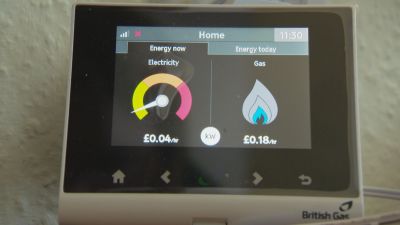Explainer
What is the Big Power Switch Off and when is the next one as thousands join energy price protest?

By ITV News Central Production Journalist Hannah Norbury
Thousands of homes across the UK switched off their lights and unplugged their electrical appliances on Sunday April 10 at 10pm, in protest against the rising energy costs.
Some people are now calling for the 'big power off' to become a weekly blackout.
Advocates are hoping diving energy consumption every Sunday evening could draw attention to the struggle to pay growing energy bills.
It comes as millions up and down the country face the bite of the rising cost of living.
What costs are rising?
According to Ofgem, the energy price cap increased by 54% from April 1, affecting around 22 million customers.
People paying for energy on default tariffs by direct debit will see an increase of £693 from £1,277 to £1,971 per year, while prepayment customers will see an increase of £708 from £1,309 to £2,017.
What is the aim of the Big Power Switch Off?
Many people who took part in the ten minute mass blackout have writtenabout it on social media.
One wrote: "Spain did this last month and had their energy prices capped to 2019 prices. Apparently when everyone turns it back on it messes with the national grid and that's why they doing it".
Another added, "Will it help with the way power companies are charging so much? Maybe, maybe not, but unless we try, nothing will change! I'm in! Are you?"
What impact did it have?
The National Grid said the Big Power Switch Off had no noticeable impact on the electricity system last night and that they don’t anticipate any future events like this causing any issues.
A National Grid ESO spokesperson said: "Our highly experienced and skilled control room engineers are accustomed to using various tools to manage any sudden fall or rise in demand to ensure a secure and reliable electricity supply for businesses and consumers every second of every day."
When is the next Big Power Switch Off?
The next Big Power Switch Off in the UK is planned for 7pm on April 16.
There have been calls to do the switch off every weekend to try and bring attention to the problems cause by energy prices.
The cost of living crisis is also seeing UK benefits fall to their lowest value in 50 years, according to anti-poverty campaigners.